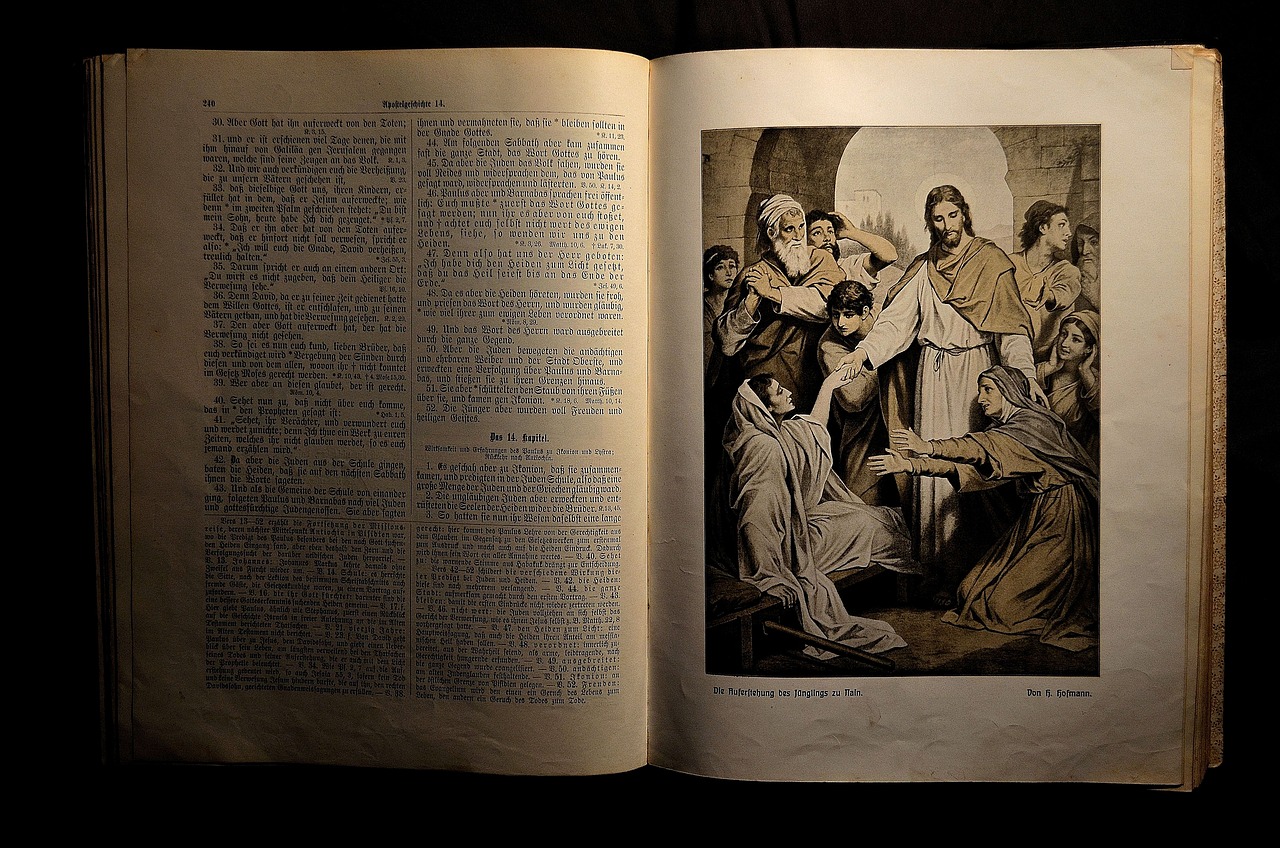Ezekiel 4: Baking Bread in the Ashes – Demystifying the Prophet’s Symbolic Performance
Ezekiel 4 plunges us into a realm of dramatic performance, where the prophet becomes a living canvas for God’s message. No longer relegated to mere words, Ezekiel embarks on a series of symbolic actions, baking bread under siege and lying on his side for days, to portray the impending judgment upon Israel and Judah. Let’s dissect this fascinating chapter, unearthing its layers of meaning and exploring its potential connections to the life and message of Jesus.
Themes:
- Prophetic Performance: Ezekiel transcends the role of passive messenger; he becomes a living embodiment of God’s message. His dramatic actions, mirroring the hardships Israel will face, serve as a potent visual reminder of the consequences of their disobedience.
- Symbolic Suffering: The barley bread baked on dung and eaten meagerly embodies the impending famine and siege Jerusalem will experience. Ezekiel’s personal discomfort mirrors the collective suffering to come, emphasizing God’s empathy and the impact of human choices.
- Unveiling Divine Judgment: The actions, coupled with God’s pronouncements, paint a stark picture of judgment for Israel’s idolatry and rebellion. While harsh, the message aims to awaken them to their need for repentance and a return to God’s ways.
- Facing Personal Discomfort: Ezekiel experiences physical, emotional, and social discomfort throughout the performance. This highlights the sacrifices and challenges often faced by those who speak God’s truth, particularly when it entails confronting harsh realities.
Jesus-Centered Connections:
- Living Out the Message: Jesus, too, embodied his teachings. He healed the sick, fed the hungry, and lived a life of selfless service, demonstrating the practical implications of his message of love and compassion. Ezekiel’s performance echoes this concept of actively demonstrating the truth one proclaims.
- Empathy for Human Suffering: Jesus wept over Jerusalem, lamenting its impending destruction. He identified with the pain and hardships of others, demonstrating God’s compassionate nature even amidst judgment. Ezekiel’s personal discomfort mirrors this empathy, highlighting the interconnectedness of human suffering and the divine response.
- Proclaiming Divine Judgment: While Jesus came primarily as a redeemer, his teachings did not shy away from pronouncing judgment on hypocrisy and injustice. He warned of consequences for those who strayed from God’s path, similar to Ezekiel’s role as a prophetic voice of warning.
- Facing Personal Challenges: Jesus faced rejection, temptation, and ultimately death on the cross. He embraced these challenges with unwavering commitment to his mission, offering a model for perseverance even in the face of adversity.
#Ezekiel4, #PropheticPerformance, #SymbolicSuffering, #DivineJudgment, #PersonalDiscomfort, #LivingOutTheMessage, #Empathy, #ProclaimingJudgment, #FacingChallenges, #FurtherExploration, #BeyondThePerformance, #LivingEmbodiment, #VisualMessaging, #CollectiveSuffering, #SacrificialSymbolism, #UncomfortableRealities, #MoralResponsibility, #TangibleActions, #GodsCompassion, #HumanHardships, #HarshRealities
Further Exploration:
- Comparing and contrasting Ezekiel’s symbolic actions with other prophetic performances in the Bible, like Jeremiah’s broken jar or Hosea’s marriage.
- Reflecting on situations where we have felt called to take a stand or express a difficult truth, and the personal discomfort it sometimes involves.
- Examining how the theme of divine judgment, coupled with empathy, resonates with contemporary notions of accountability and restorative justice.
- Contemplating how we can embody the messages we share, not just through words, but also through our actions and choices.
Beyond the Performance:
Ezekiel 4, with its powerful symbolic actions and potential echoes of Jesus’ ministry, offers valuable insights into the nature of prophetic witness, the complexities of divine judgment, and the importance of personal embodiment of truth. It reminds us that God’s messages often transcend mere words; they manifest in tangible actions, uncomfortable truths, and displays of both divine justice and profound empathy. By stepping into Ezekiel’s shoes and contemplating the connections to Jesus, we may find ourselves called to embrace our own roles as messengers, live out our values, and stand firm in the face of challenges, ultimately contributing to a world where truth, compassion, and justice prevail.
This analysis presents a springboard for your own exploration of Ezekiel 4. By delving deeper into the symbolism, engaging in personal reflection, and applying its lessons to your own life, you can unlock the enduring wisdom and transformative power of this ancient text.
Please let me know if you have any further requests or if you’d like me to analyze other chapters of Ezekiel using this format.



